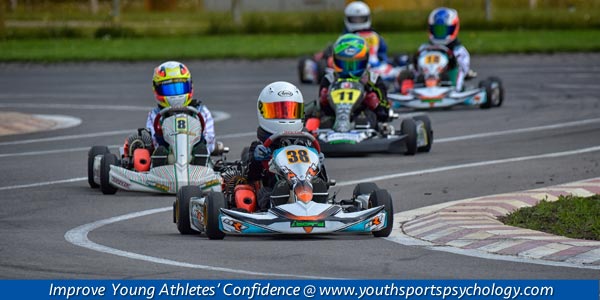
Developing a Growth Mindset in Youth Sports
A dad writes us saying that his son, a gifted athlete, has begun playing it safe since he became a high school player. He plays to avoid making mistakes.
“I can’t figure out how to get into his head and undo whatever is keeping him from crossing this mental boundary,” the dad says.
This dad needs to teach his kids that “the doer” makes mistakes and also makes things happen.
Bruce Kracke, a Positive Coaching Alliance trainer, explains the concept like this:
“Sports are an opportunity to make mistakes and learn without horrible consequences. We want to create an environment where kids can make mistakes.”
He talks about the difference between a “fixed” and a “growth” mindset…
Kids with a growth mindset see mistakes as an opportunity to learn and grow. They’re able to move on after making mistakes—and open to talking, after the game, about what went wrong and learning from it.
Kids with a “fixed” mindset are more likely to play to avoid making mistakes. It’s harder for them to take risks and learn from them.
“Some athletes play to not look bad and to play well enough.”
These are kids with a fixed mindset, Kracke says. Athletes with a growth mindset continually try to improve on themselves and take risks.
“The doer makes mistakes,” says Kracke, quoting John Wooden’s book, They Call Me Coach, “The whole idea is that you want kids to take risks. The team that makes the most mistakes will probably win. The doer makes things happen.”
So how do you help your kids become doers who embrace mistakes?
First of all, don’t scold them for making mistakes. Encourage them to move on. Tell them it’s natural to make mistakes.
Second, create a culture that embraces mistakes and looks at them as learning opportunities, says Kracke.
“Coaches and parents should speak the same verbage so that when a child misses a couple of shots, there isn’t a judgment on their character.”
With this type of feedback from coaches and parents, kids are more likely to trust their instincts, play freely and just go for it. And that’s when they’re most likely to feel confident and excel.
What’s more, learning to just go for it is an important skill they’ll transfer to other areas of their lives!
Related Articles on Youth Sports:
- How Kids Can Learn to Make the Most of Mistakes While Competing
- When Athletes Only Dwell on Post Game Mistakes
- Addressing Anxiety, Mistakes and Low Confidence in Youth Sports
*Subscribe to The Sports Psychology Podcast on iTunes
*Subscribe to The Sports Psychology Podcast on Spotify
Help Young Athletes Boost Confidence in Sports!
Every day, we receive letters from parents like you who want their children and teens to excel in sports. However, these parents can see fear, doubt, and frustration on the faces of their kids who struggle with the “inner” game of sports. But these parents have no idea how to help their kids overcome the worries, expectations and self-defeating thoughts that prevent their young athletes from feeling confident and successful.
You can benefit from our 15-plus years’ of work in sports psychology and sports parenting research. Now, you can tap into our secrets to sports success through a cutting-edge, 14-day program that helps young athletes overcome the top “mental game” challenges that sports parents face—and the top challenges young athletes face.

